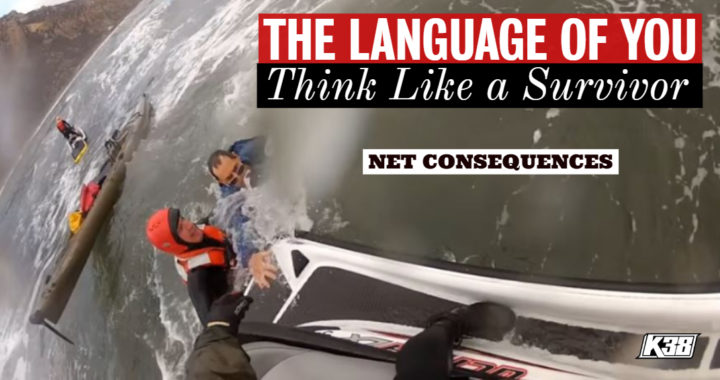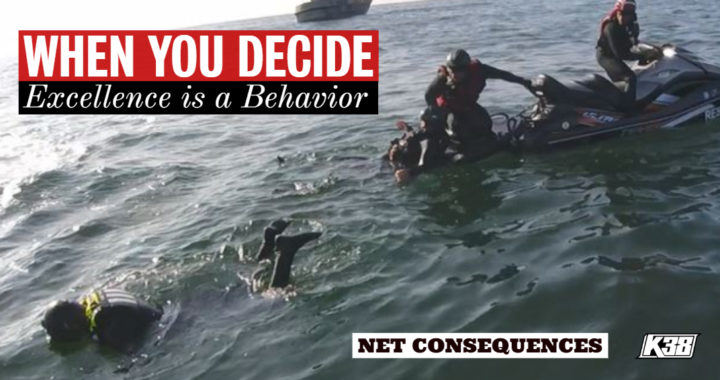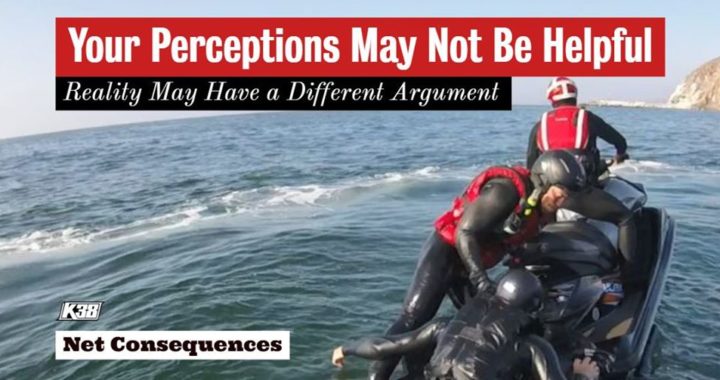Your body language is your connection to those who can see and are willing to listen
You want to get the attention of others? Watch your body language!
When we work in the water you can forget the pitch of sound for articulate conversation. You can demand your body language to compensate and overhaul communication and direction.
When the search is on, our survivors may have their ears covered in water or they may only hear muffled sounds. Their level of conscious being may be diminished.
Are you ready for some constructive advice?
Are you asking that compromised person to ‘put their hand in the air’? Don’t be a poor imitator or at least do not give permission to mislead your potential. You deserve to know the difference.
Start thinking about what you are doing and the results, don’t just assume its proper or the best method. You may discover a disappointment in your past assessments. And that is a good place to start!
What you can expect if you were trained behaviorally in that worn out catch phrase is to assist your survivor in starting their own drowning process if they are using their arms to stay afloat. Don’t listen to people who tell you that because it’s a corrupt behavior.
You must do all the work for our survivors, 100% of the action, it is not a shared 50/50 split! Behavior shift of expected effort with a better resolution to maintain your tempo of lifesaving time.
Time stated as the race against drowning.
EXPAND POTENTIAL - DO NOT CRUSH IT
Don’t allow corruption to be an invitation to a person who is trying to survive, lend them hope by your actions, how you behave and what you do next for them in the water is what they need to rely upon.
Give yourself permission to provide humanity with your best measure, not your restrictions. You have the influence of authority and action, use it with compassion, kindness, strength and knowledge.
Study every day, don’t stop gathering knowledge and perspective.
Part of your navigational role is to try your best to get their attention, but not by reckless operations.
When was the last time you went into the water you work wearing a pair of swim trunks or clothing and floated for 45 minutes, alone? Like a survivor.
That is part of the language you will be speaking and we say it like this:
Think like the survivor but act like the boat coxswain.
You captain the delivery of an asset you can both depend upon because you care.
Remember this you tell your story by your actions, ways and deeds. Practice being mindful of your body movements.
Does the Rescue Water Craft appear stable when you move?
Do you place the craft precisely where it needs to be?
Do you make contact with the survivor before your boat or TAD does?
PAY ATTENTION
Remember, what people can see they will respond. Those movements may be simple, tapping your hand against the hull, reaching out to them, touching them, how your face looks.
Think about your facial expressions. What does your face look like to others? You are wearing a helmet, maybe a balaclava, perhaps eye protection, what else? Can they see your eyes, are you yelling?
Film them and study your response and others, practice using your facial expressions as a way to make contact, an impression.
The tone of your voice, simple and direct words. Where do survivors eyes track? What are they focused on? Can they hear you or are they in shock, which words would be symbolic to their soul at that moment?
Our behaviors are a constant work in progress.
That means the love you have for your job, for survivors and yourself are the divine of our purpose.
Do not be afraid, be amazing!
Download this article here:
__________
Posted: December 6, 2019
Content Creator of Rescue Water Craft and Personal Water Craft boating international education standards: Shawn Alladio is the world’s foremost authority and leading subject matter expert. She cares most about her community and the culture surrounding the safety of event service providers and Rescue Water Craft operators, working hard and dedicated towards protecting their reputation, distributing safety information and continuing to train these amazing individuals to the highest standards of care.
__________
Have any questions? Come train with us and discover what your community is doing to modernize standards, safety and reduce liability!
Caution: Use at your own risk. Please take a qualified Rescue Water Craft training course and maintain proper records and respect all the PWC, RWC, PPE, and gear OEM manufacturer warning labels and cautions.


